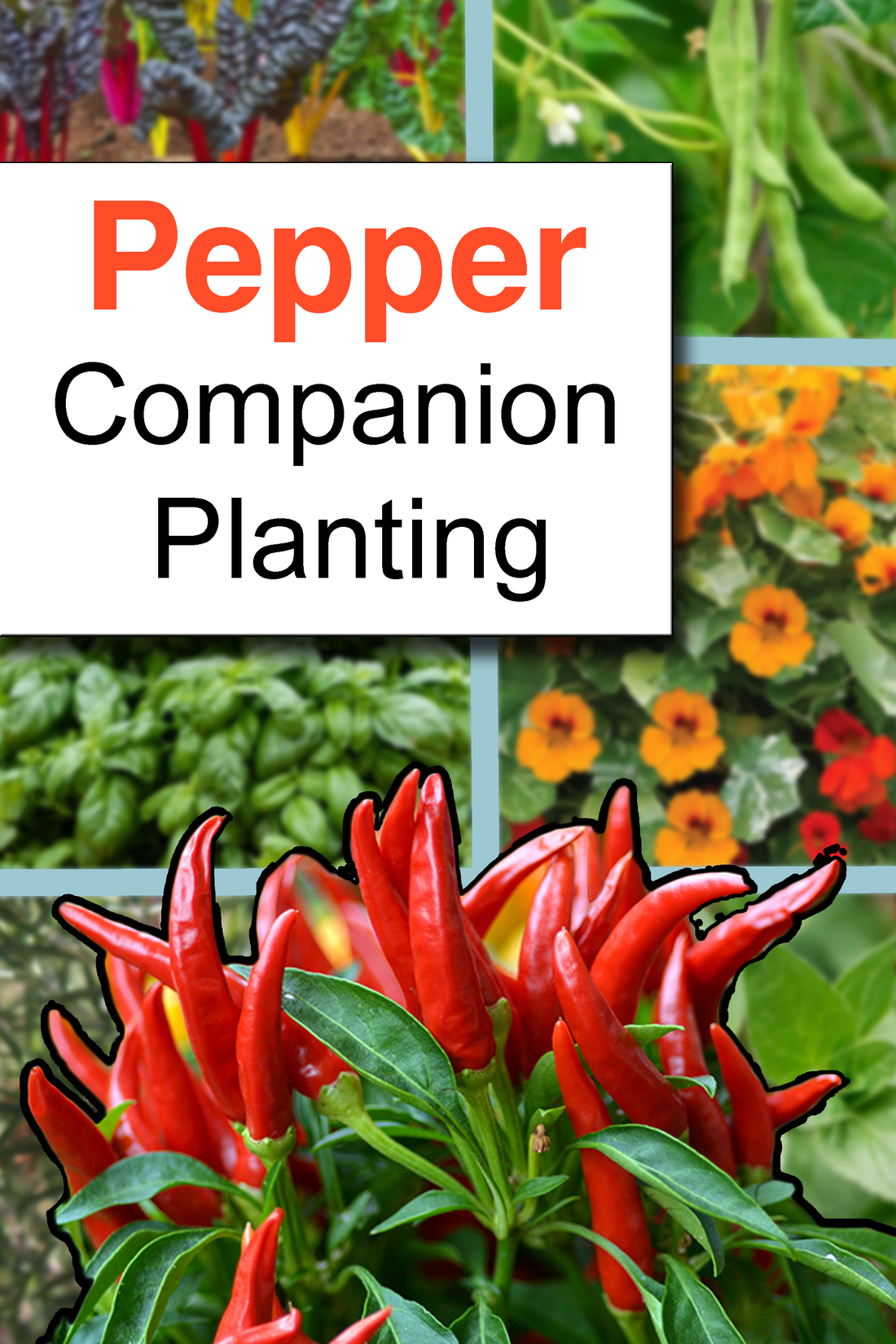Peppers area fun and challenging vegetable to grow in your garden. They bring a unique level of heat to the complex flavours you may be growing this season. Peppers can often benefit from additional companion plants. And ensuring your peppers make it through the season, free of pests and disease.
Like Tomatoes, peppers belong to the night shade family and such they share a lot of the same companion plants. If you want to check out our article on tomato companion planting click here. Although there are some key differences between the two.
Here are the DOs and Don'ts of companion planting with Peppers!
Do Plant With Peppers:
As with all items on this list, if it can be planted with tomatoes, it can be planted with peppers, and vis versa. Pepper companion plants tend to focus more on complimentary flavours such as herbs. And less of defensive measures, as peppers tend to be somewhat pest resistant.
Swiss Chard
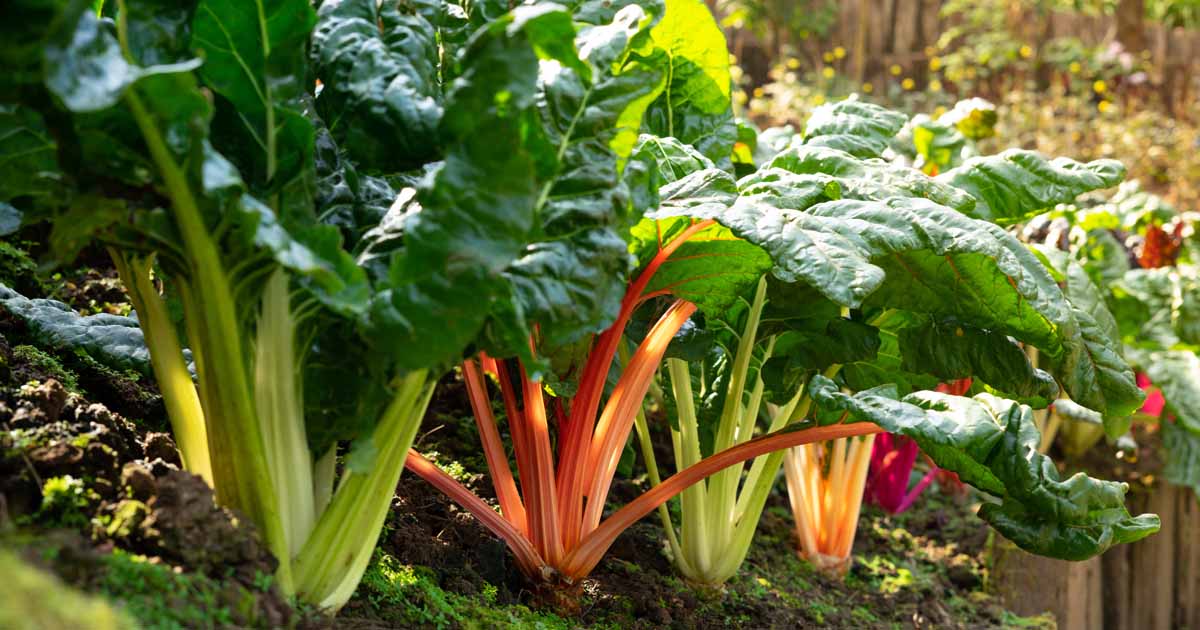
Swiss chard may not be the first thing people think when it comes to peppers companion planting. But chard offers an excellent way to control weeds, with minimal work. As with most of the herbs on this list, chard is a great way to create ground cover, in an otherwise unused space around the peppers. A popular vegetable on its on, chard is an excellent addition to anyone's pepper garden!
Marigold
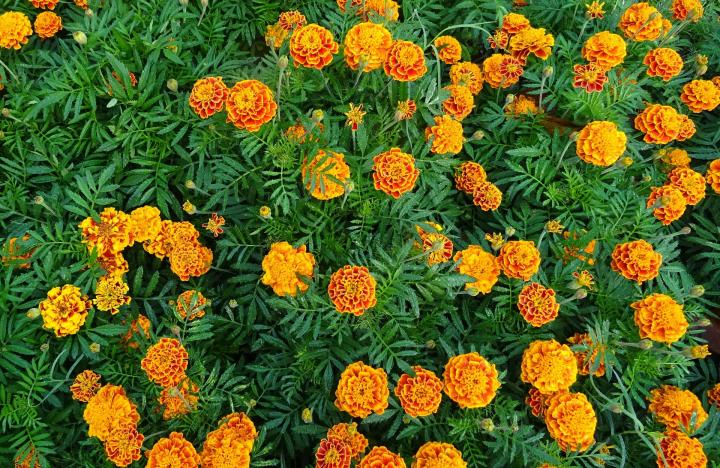
Marigolds have been planted with tomatoes for hundreds years, protecting plants from nematodes, hornworms, and even rabbits. Their bright colours and strong smell help to repel these harmful pests. They also offer a welcome addition of colour to the garden. Their wide range of colours only helps to increase pollination and the overall vibrancy of your garden. A sworn method for most veteran gardeners.
Rosemary

Rosemary is an excellent addition to the garden, with strong beautiful fragrance. It is an excellent herb to include and can be very versatile in the kitchen. Rosemary acts as a natural living mulch, helping to retain soil moisture while not competing with the pepper plants for nutrients. This is another example of herbs that compliment peppers both in the garden and in the kitchen. As a side note, rosemary behaves in a similar way to Nasturtium.
Nasturtium
:max_bytes(150000):strip_icc()/GettyImages-636713072-5145f72f452946a1b415f75525186120.jpg)
Nasturtiums are a flowering plant with hexagonal leaves, and bright flowers. These plants behave differently to all the others on this list. Nasturtiums have long been used as a trap crop for the backyard gardener. Although they have no immediate repelling properties, nasturtium can prove essential to the defense of your tomatoes, aswell as other fruiting vegetables. Studies have shown that trap crops can affectively prevent bugs from destroying flowering/fruiting plants. Aswell the large leaf growth on nasturtium provides an excellent ground cover, killing off weeds and providing a safe habitat for insects that will prey on any pests. As if that wasn't enough, nasturtium are prized for their beautiful blooming flowers, attracting gardeners and pollinators to them.
Parsley

Parsley is known to attract hoverflies, which in turn prey on those annoying aphids. Any plant that can help reduce the amount of aphids in your garden, is a plant you should consider adding. On top of being a great natural "pesticide" parsley is a popular herb to grow in your home garden. Give parsley a chance, and you may find it is an excellent companion for your tomatoes.
Oregano
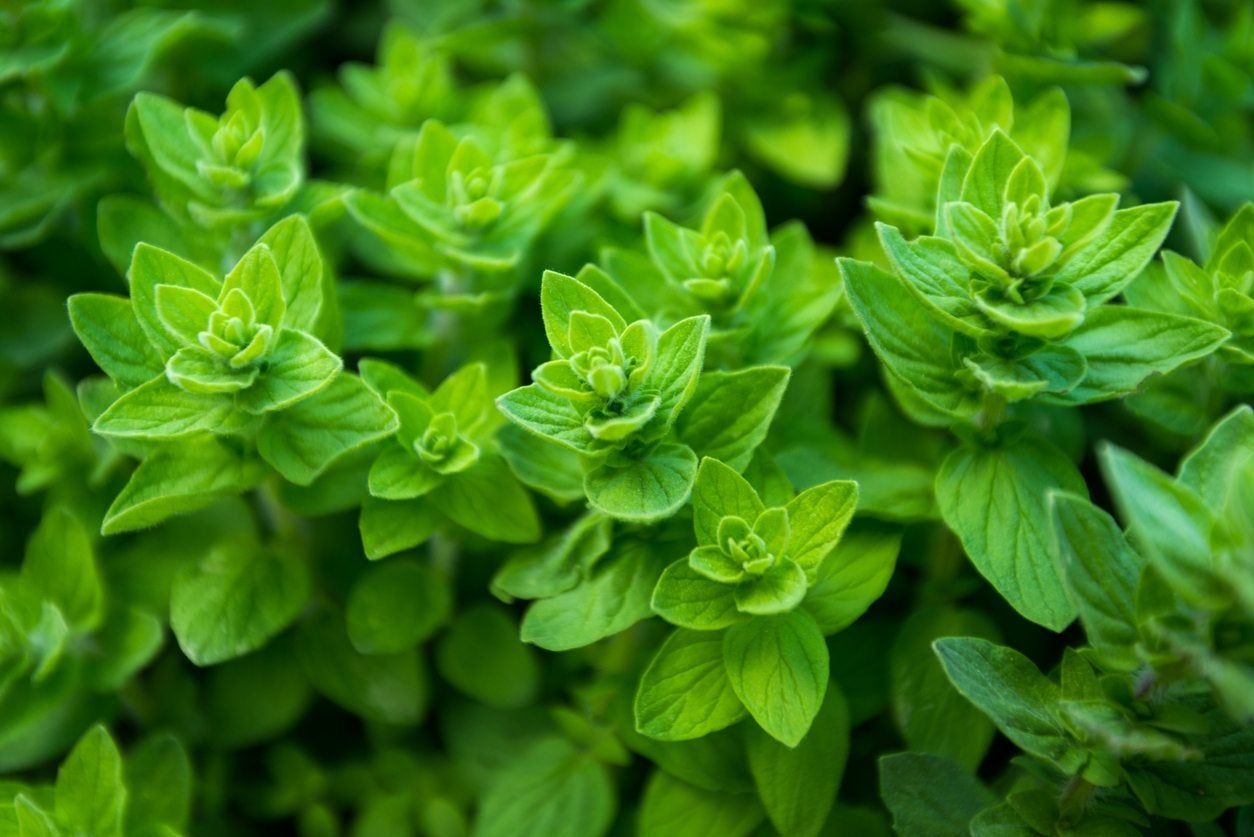
Oregano is another awesome way to provide a natural cover over soil. Preventing weeds and retaining soil moisture. Oregano is known to spread out over large amounts of the garden, making it perfect for planting amongst peppers. Oregano is also a very popular choice in the culinary world when it comes to cooking with peppers. An excellent flavour combination between the two.
Basil
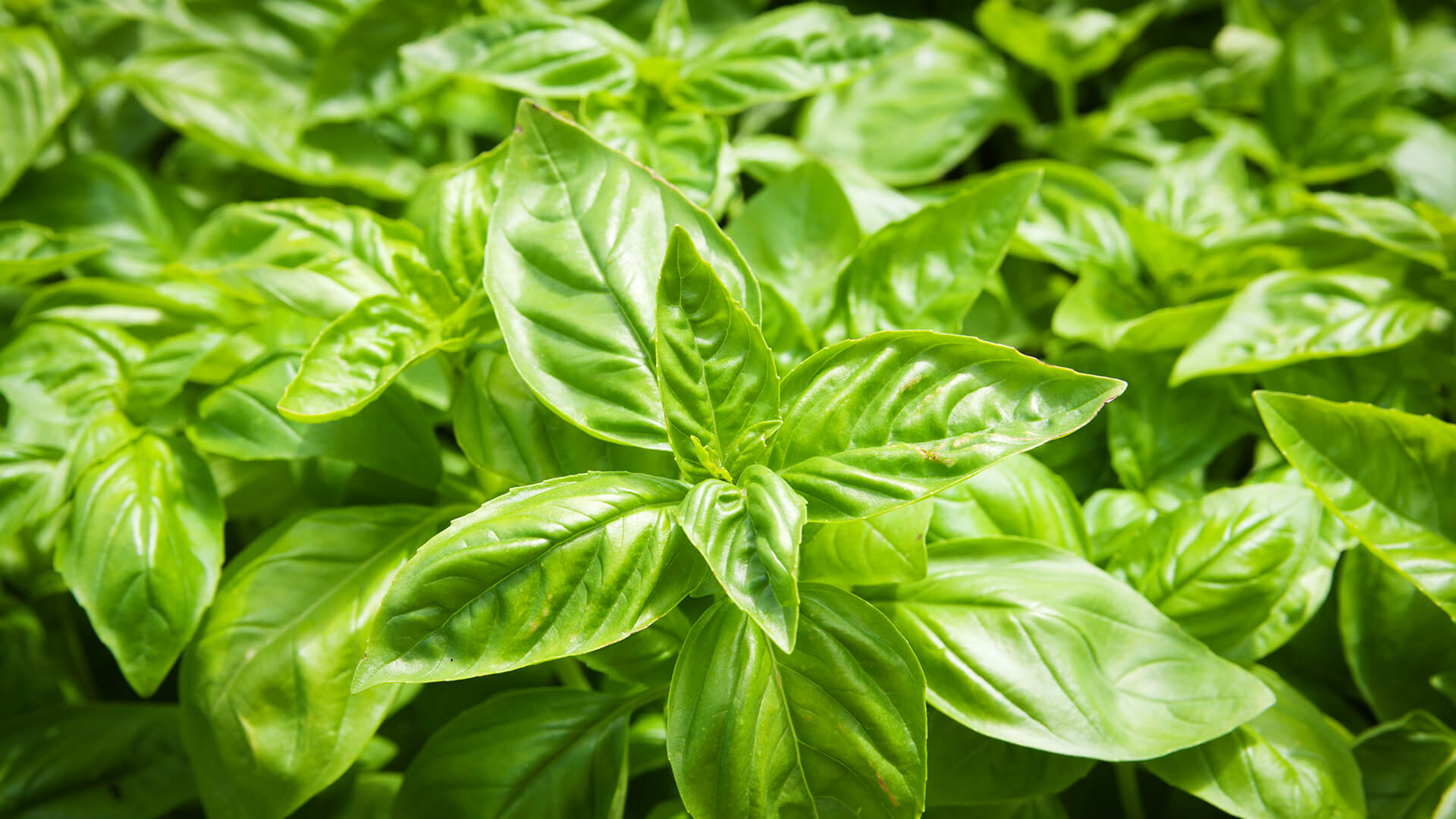
Planting Basil with Tomatoes is one of the most common companion plant combination there is. There's the obvious benefit of having fresh amazing basil from your garden every day. Basil grows incredibly easy in the garden amongst the tomatoes, producing high yields! Basil is also an excellent way repel flies and hornworm from your healthy tomato plants. A must have for your garden!
Don't
Beans
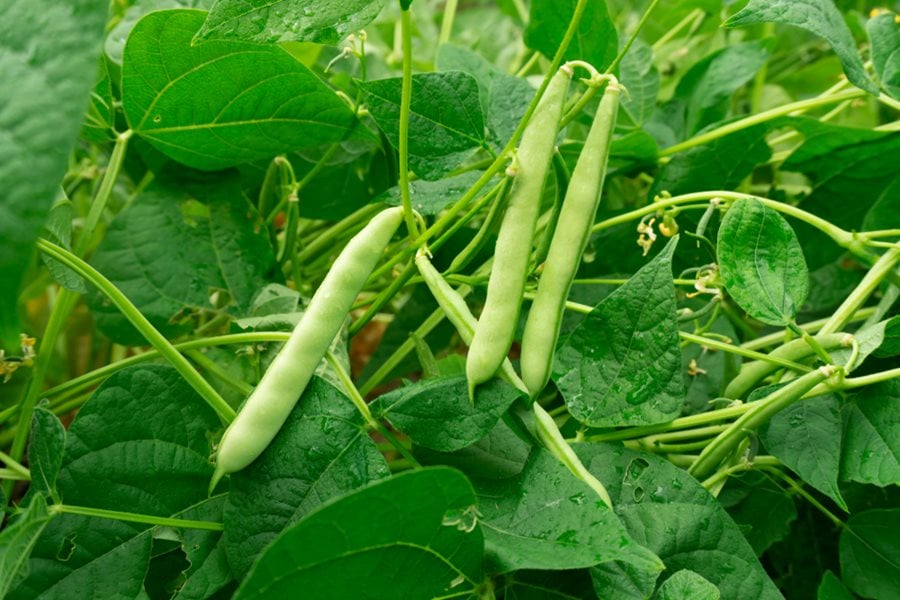
Beans are a great choice for the garden, however it is important to keep them separated from your pepper plants. It is well known that beans produce nitrogen and help bring it back into the soil. And while that is great for a lot of plants such as leafy greens and cabbage. Peppers require a complex, and often balanced N*P*K level. Meaning their Nitrogen, Prosperous, and Potassium levels should remain relatively balanced when mature. The increased levels of nitrogen may lead to the plant focusing on leaf and stem growth, instead of producing flowers and pepper pods. So while beans may be a fun vegetable to grow, it is best to keep them separated from your peppers.
Kohlrabi
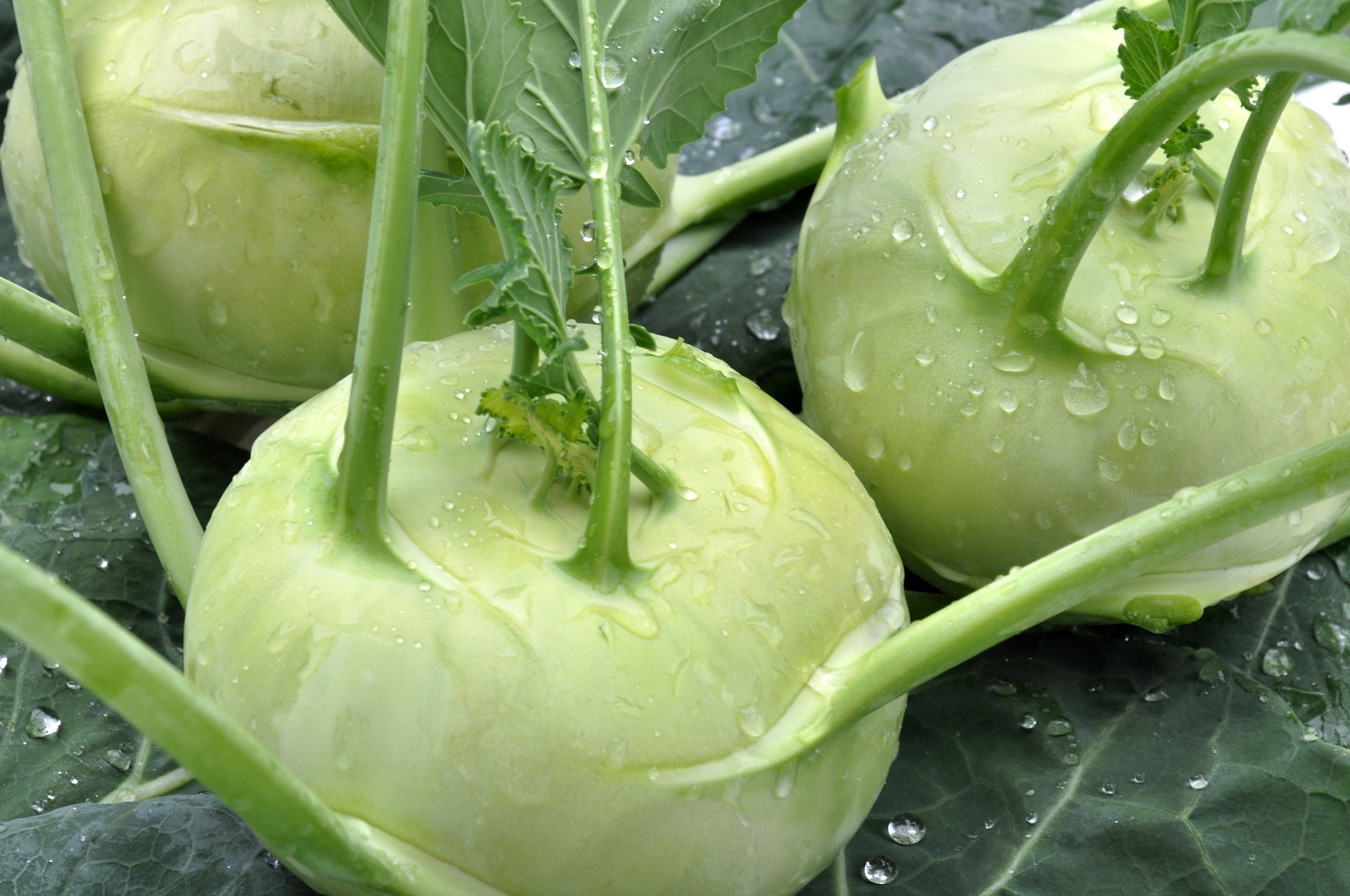
There is a strong chance you will not have to worry about planting this near your peppers. Although it is not all that common, kohlrabi should not be planted near your pepper or tomato plants for that matter. It is similar to cabbages, in that it is a heavy nutrient feeder. Aswell it can attract harmful cabbage flies. Best to keep this plant away from any nightshade family plants.
Cabbage (Brassicas Family)
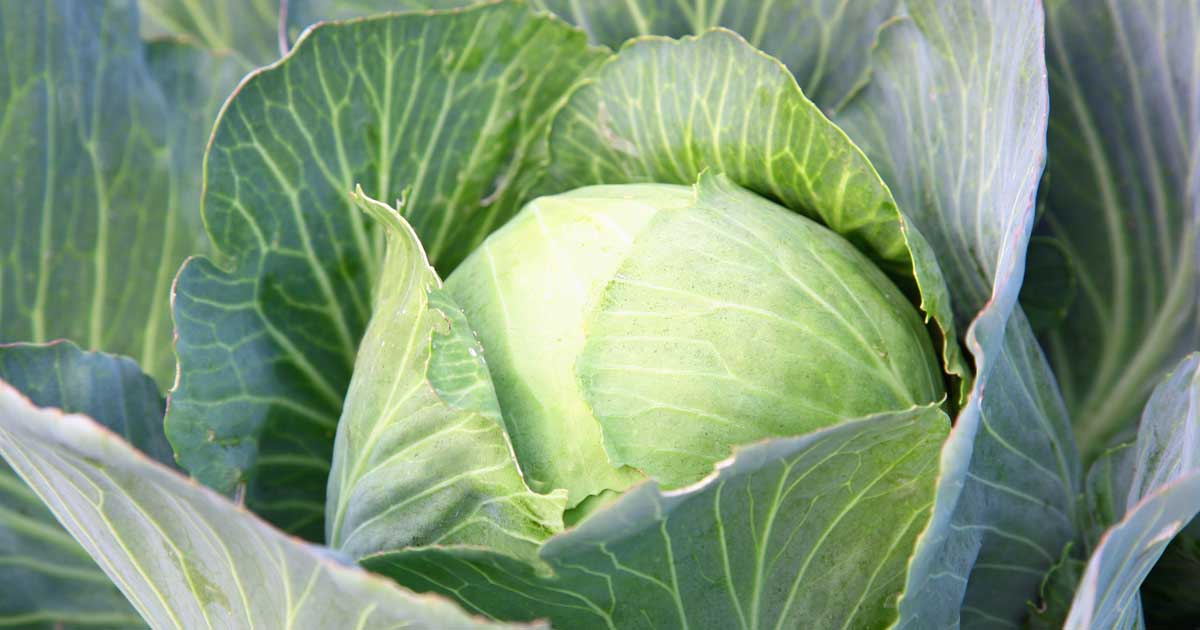
Cabbage and all Brassicas for that matter are a common choice, often thrown in the garden where space can be afforded. While cabbage is an excellent crop to plant you must be mindful not to plant it near your tomatoes! Brassica in general are very heavy feeder, meaning they require lots of nitrogen and nutrients to grow. And will compete directly with the Pepper plants for those nutrients. Is it often assumed that cabbage plants and brassica will stunt the growth of Pepper plants, when planted together.
What do you think of our list?
Do you Grow any of these in your garden?
Let us know down below in the comments, or get in contact with us on Instagram @RedHotSeeds

